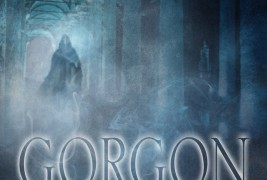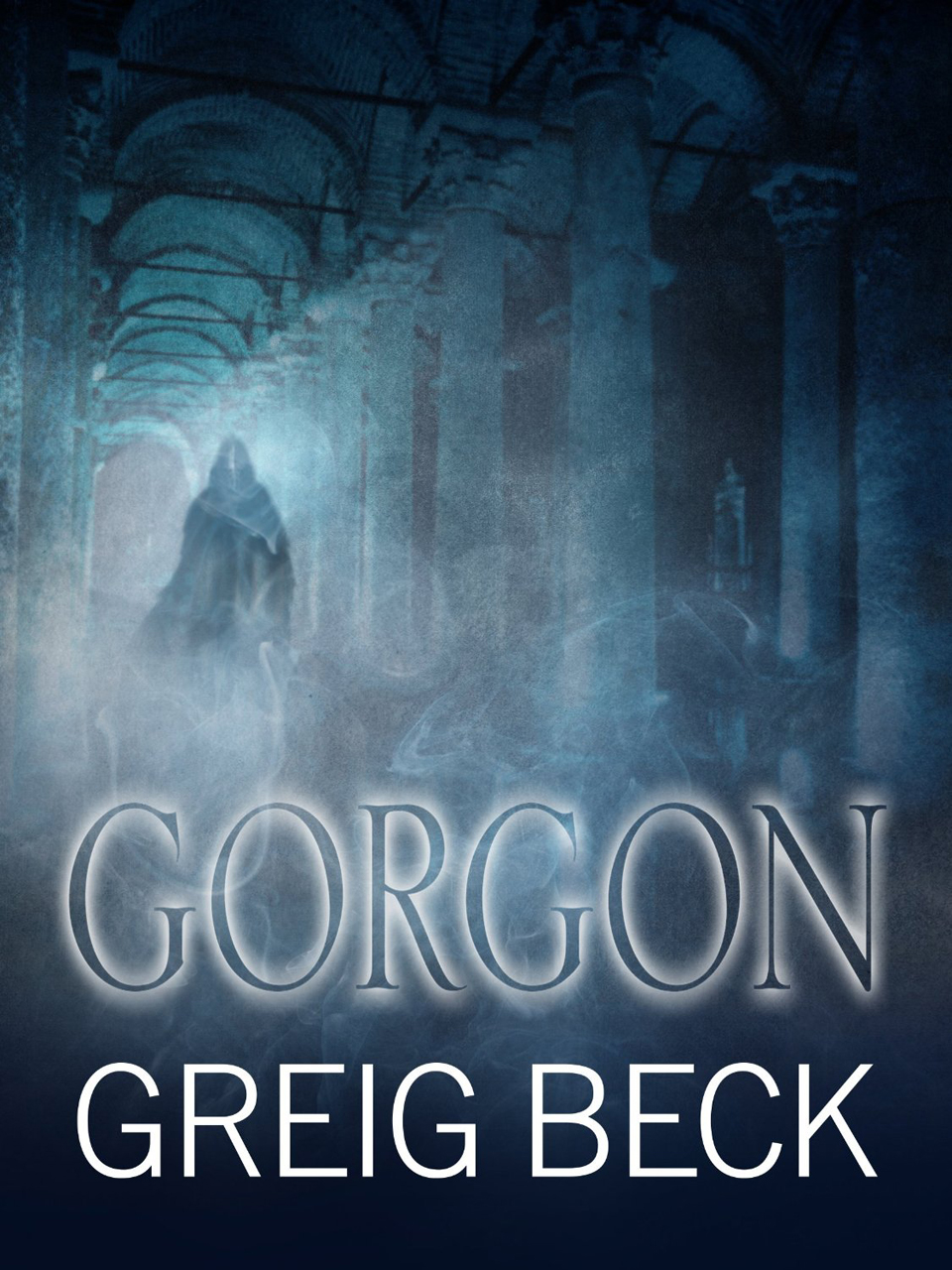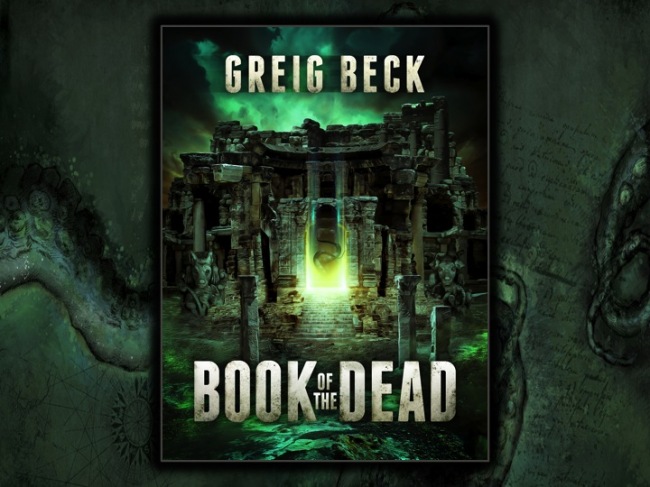
Greig Beck dedicates Gorgon to the men and women of the Australia & New Zealand Armed Forces—doubtless an innocent gesture from an ANZAC-loving Aussie, but one that left this American reader a bit leery. Ever since September 11th, the United States has lost anything like a balanced perspective on the military. “Support the troops” is no longer about understanding, post-Vietnam, that soldiers aren’t responsible for the callous foreign policies that send them to war; it’s about unswerving support for those self-same military policies. What I’m saying, Savage Readers, is that a certain kind of person is going to like Gorgon, and that person is not me.
Gorgon pits Beck’s ongoing Alex Hunter character, a special ops badass equipped with superhuman powers following the mysterious Arcadia Project, against a mysterious enemy that arises from a secret chamber below a Turkish palace and leaves a trail of seemingly petrified victims in its wake. Alex Hunter and his HAWCs, a top-secret force of elite U.S. soldiers, get involved when the Russian government sends in deadly Spetsnaz assassin Uli Borshov, and that’s when shit gets crazy.
That sounds snide, but I mean it in the best way. Gorgon isn’t a bad book, nor is Beck a bad writer. He smoothly delivers Hunter’s extensive backstory without it ever feeling like an infodump, and he does a better-than-average job of giving him an inner life. Gorgon is less horror and more ‘80s action, down to the Cold War-esque spectacle of Russian and American agents racing for a loose super-weapon (Beck does it with style, though, giving us a loathsomely oily Vladimir Putin stand-in and his Cossack-like henchman Borshov). Those with tastes that run to Van Damme and Schwarzenegger will probably like Alex Hunter too. If that describes you, consider this the end of the review. It’s a fun story; go read Gorgon and spare yourself the next few paragraphs (shit—could be pages) of my pretentious whining about why I don’t like stories like Gorgon.
*
The reason, of course, is that Vietnam looms large in my mind. I was born in 1982, I have no veterans in my family, and I’ve never served in the military in any capacity. Maybe it was the way my parents talked about Vietnam. It wasn’t just a historical event like World War II or the Civil War, but a thing of organic horror, a bloody reminder that military conflicts are only as good as our motives for getting into them, and that even normal, sane, well-adjusted people can commit atrocities under the right circumstances. Vietnam bifurcated our view of war—perhaps because it was our first mass-media military conflict, or perhaps because our reasons for getting into Vietnam—like the Iraq War that followed it a generation later—were so much more nebulous and self-serving than our campaigns against Germany and Japan. Or it could be that Vietnam led to some truly great, haunting works of art: Full Metal Jacket, Apocalypse Now, Tim O’Brien’s luminous, terrifying, and semi-autobiographical The Things They Carried. . . .all these brought home the reality of war as a place of intermittent glory and constant madness.
When I worked the midnight shift at a Nashville hotel just after graduating college, the guy who drove the airport shuttle had been a tunnel rat. One Christmas morning around 4:00 AM, he told me a little bit about what it had been like to crawl into VC tunnels with nothing but a pistol and a flashlight. “I saw all the stuff you hear about,” he said. “Booby traps, stakes, vipers on strings. . .” He pulled down the collar of his button-up shirt to show me a thin, almost surgical-looking scar on his collar-bone. “I met a guy with a knife down there once.”
“Man, that must have taken a lot of courage,” I said.
“Courage had nothing to do with it,” he said. Not cruelly, but as a simple fact.
My wife’s grandfather is one of those guys who collects military stuff. You know the kind: they generally haven’t served, but they can quote you Jane’s chapter and verse back to 1939. I’ve got nothing against these guys. They’re smart, fun to talk to, and they’ve usually picked up some pretty incredible shit (my wife’s grandfather has twin ivory-handled flintlock pistols from 17th century Germany). But they remind me of D&D players I’ve met who really wished they were their 20th level elven paladin of Corellon Larethian, but had no inkling of what it must feel like to die in a blood-soaked, trampled field, entombed in plate mail warped by repeated blows from a mace.
For as much time as Beck spends updating us on the latest hardware to which the HAWCs have access, introducing us to grizzled old career military men like Colonel Jack “the Hammer” Hammerson, and walking us through the protocols of the Turkish special forces, I’m not sure I believe in the world of Alex Hunter. I believe that he misses his wife and child, whom he can’t be with due to homicidal rage-inducing side effects of the Arcadia Project. I believe that he is a skilled and talented soldier. But he lacks a certain fatalistic poise I have seen in real-world combat veterans. Alex Hunter will always bounce back for the next book. The bus driver I met in Nashville knew that he didn’t have that luxury.
You don’t have to have seen war to portray it effectively. One Vietnam vet I know said Full Metal Jacket, directed by non-veteran Stanley Kubrick, was the most realistic cinematic portrayal of the war he had seen. But I think you do have to accept certain basic realities of what war does to people, realities from which Alex Hunter, like many a self-proclaimed American “patriot,” is completely shielded.













